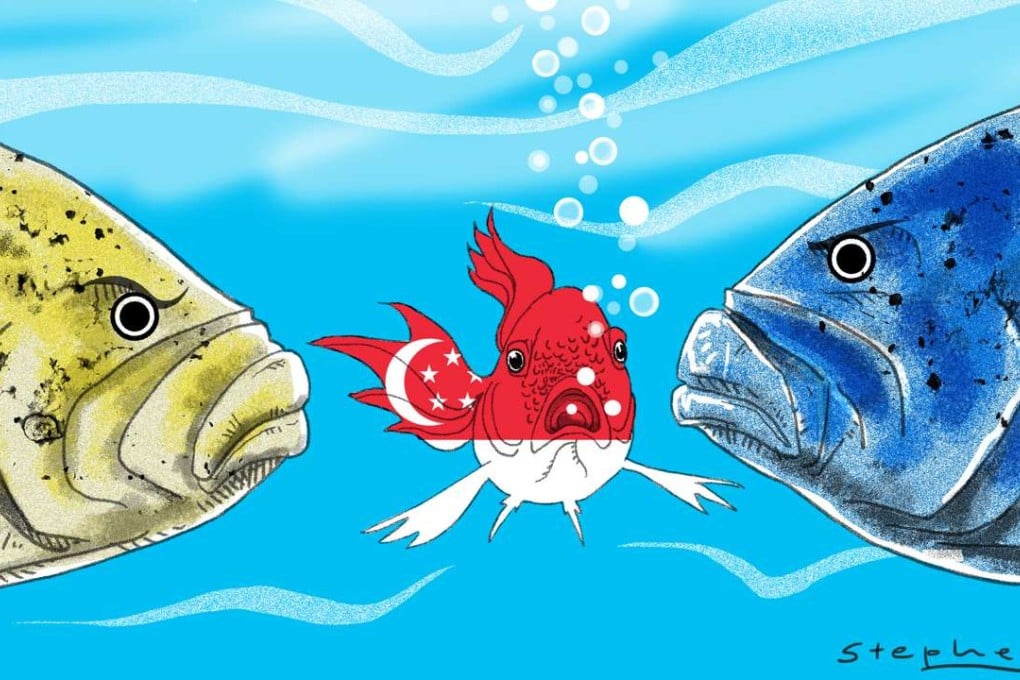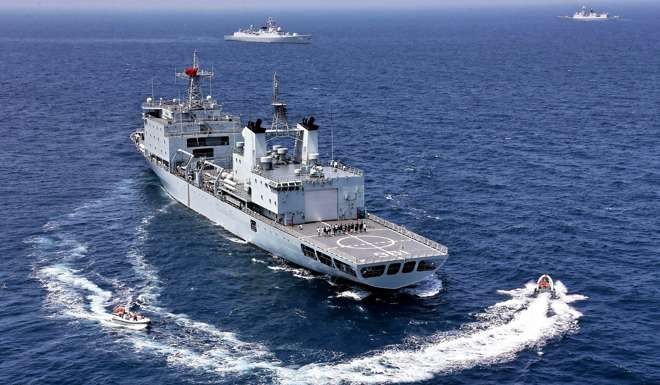Raising concerns about the South China Sea does not make Singapore, or other Asian nations, anti-China
Tim J. Huxley and Alexander Neill say the issue is on their agenda because leaders have a huge and legitimate stake in regional security, and China’s militarisation of regional waters is not helping

What’s really making Beijing angry with Singapore?

How China is using its Global Times attack dog to intimidate Singapore
In the months before the international Permanent Court of Arbitration released a judgement in July which comprehensively rejected China’s expansive territorial claims in the South China Sea, Beijing’s propaganda machinery went into overdrive in an effort to pre-emptively discredit the ruling, which it correctly anticipated would have negative implications for China. Concurrently, key figures from China’s strategic community promulgated China’s own narrative for its claim to the sea and its features, which has been described by officials as one of China’s “core interests”.
In the wake of the court’s ruling, hardliners in Beijing are now evidently redoubling their efforts to undermine any common diplomatic position among Southeast Asian states which might further complicate China’s ambitions to dominate regional waters. Since 2012, this policy has already blighted efforts within Asean to project a united Southeast Asian response. China is now apparently taking the contest into non-Asean arenas, and seems willing to use bullying tactics against Southeast Asian countries that choose to withstand its pressure.
General Jin, who was a middle-ranking member of the PLA delegations to the Shangri-La Dialogue in 2015 and 2016, appears in his comments to reflect concerns in Beijing that Singapore’s government and the International Institute for Strategic Studies have intentionally highlighted the South China Sea dispute at the Shangri-La Dialogue.
